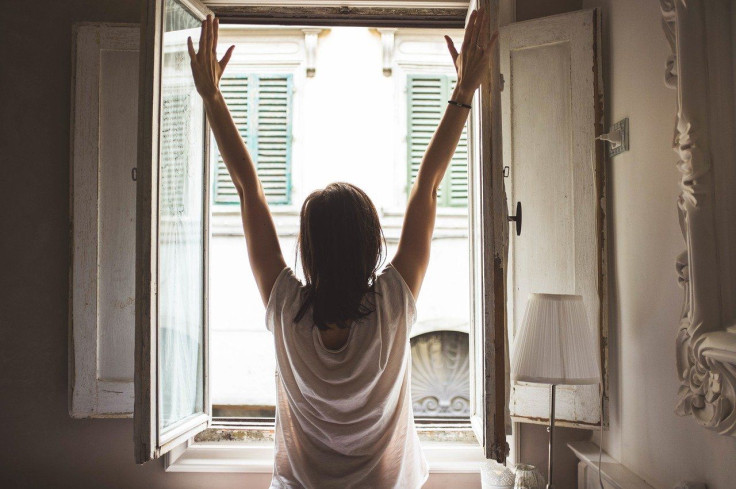Waking Up Earlier May Reduce Depression Risk By 23%, New Study Says
KEY POINTS
- Genes play a role in people's sleep timing preferences
- A study found that sleeping an hour earlier can lower depression risk by 23%
- It provides evidence supporting sleep timing's influence on depression risk
Waking up earlier doesn't just give people more time to be productive, it may also benefit their mental health. In a new study, researchers found that waking up just an hour earlier can reduce depression risk by 23%.
Previous studies found that night owls are up to twice as likely to experience depression than early risers, the University of Colorado Boulder (CU Boulder) said in a news release. Those studies, however, were rather small.
For this particular study, recently published in the journal JAMA Psychiatry, researchers from CU Boulder and the Broad Institute of MIT and Harvard looked at data of about 850,000 people from 23andMe and biomedical database the U.K. Biobank. Among these individuals, 85,000 wore a sleep tracker for seven days and 250,000 filled out sleep preference questionnaires.
The idea was to look at the link between people's "genetically proxied" diurnal preferences and their risk for depression using the "Mendelian randomization," which can determine cause and effect in genetics. Researchers also sought to see whether changing one's sleep timing can really help and how much one would need to shift their sleep to reap the benefits.
As CU Boulder reported, there were about 340 common genetic variants, including those in the "clock gene," that influenced people's chronotype or the differences in their alertness in the evening or morning.
The researchers also looked at data that included genetic information, medical records, prescriptions and surveys about major depressive disorder (MDD) diagnoses.
Earlier sleep reduces depression risks
The researchers found that those who were genetically predisposed to be early risers had a lower risk for MDD. Each hour of an earlier sleep midpoint, or the halfway point from going to bed and waking up, signified a 23% drop of MDD risk.
"Put another way, if someone who normally goes to bed at 1 a.m. goes to bed at midnight instead and sleeps the same duration, they could cut their risk by 23%; if they go to bed at 11 p.m., they could cut it by about 40%," CU Boulder reported.
It's not clear if early risers could reap benefits by waking up earlier, the university said, but the sleep adjustment will "likely" help night owls. What exactly lowers the risk is also unclear, but it has been suggested that it may be because early risers get more light exposure, thereby influencing their mood.
Researchers do note that further investigation on the matter is needed, but the study does provide evidence supporting how people's sleep timing can influence their risk for depression.
"We have known for some time that there is a relationship between sleep timing and mood, but a question we often hear from clinicians is: How much earlier do we need to shift people to see a benefit?" senior author, Celine Vetter of CU Boulder, said. "We found that even one-hour earlier sleep timing is associated with significantly lower risk of depression."

© Copyright IBTimes 2024. All rights reserved.












